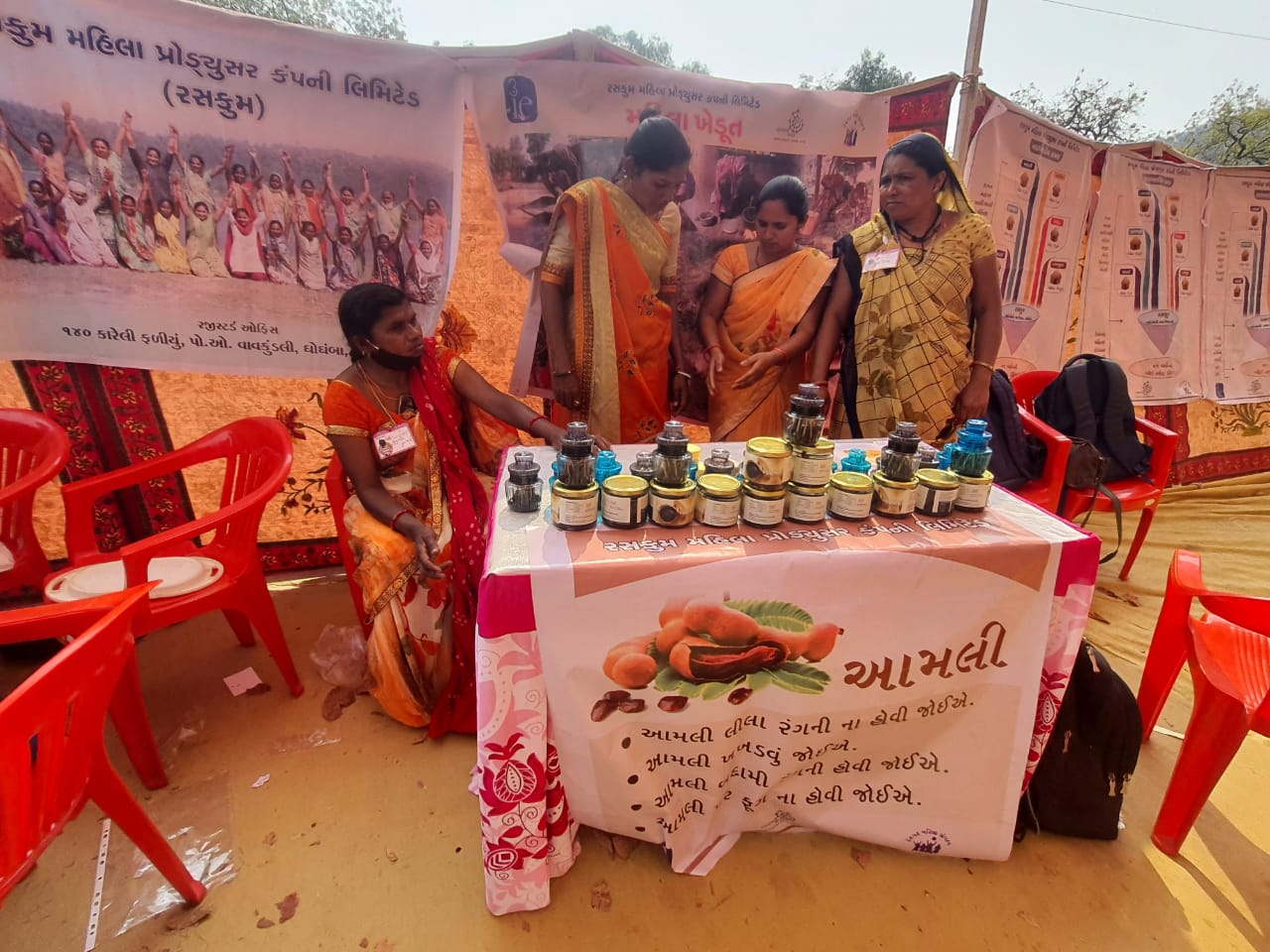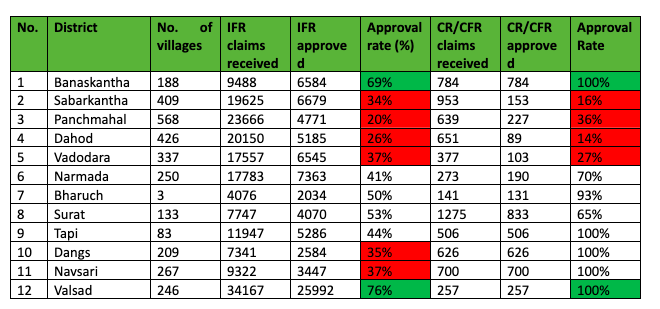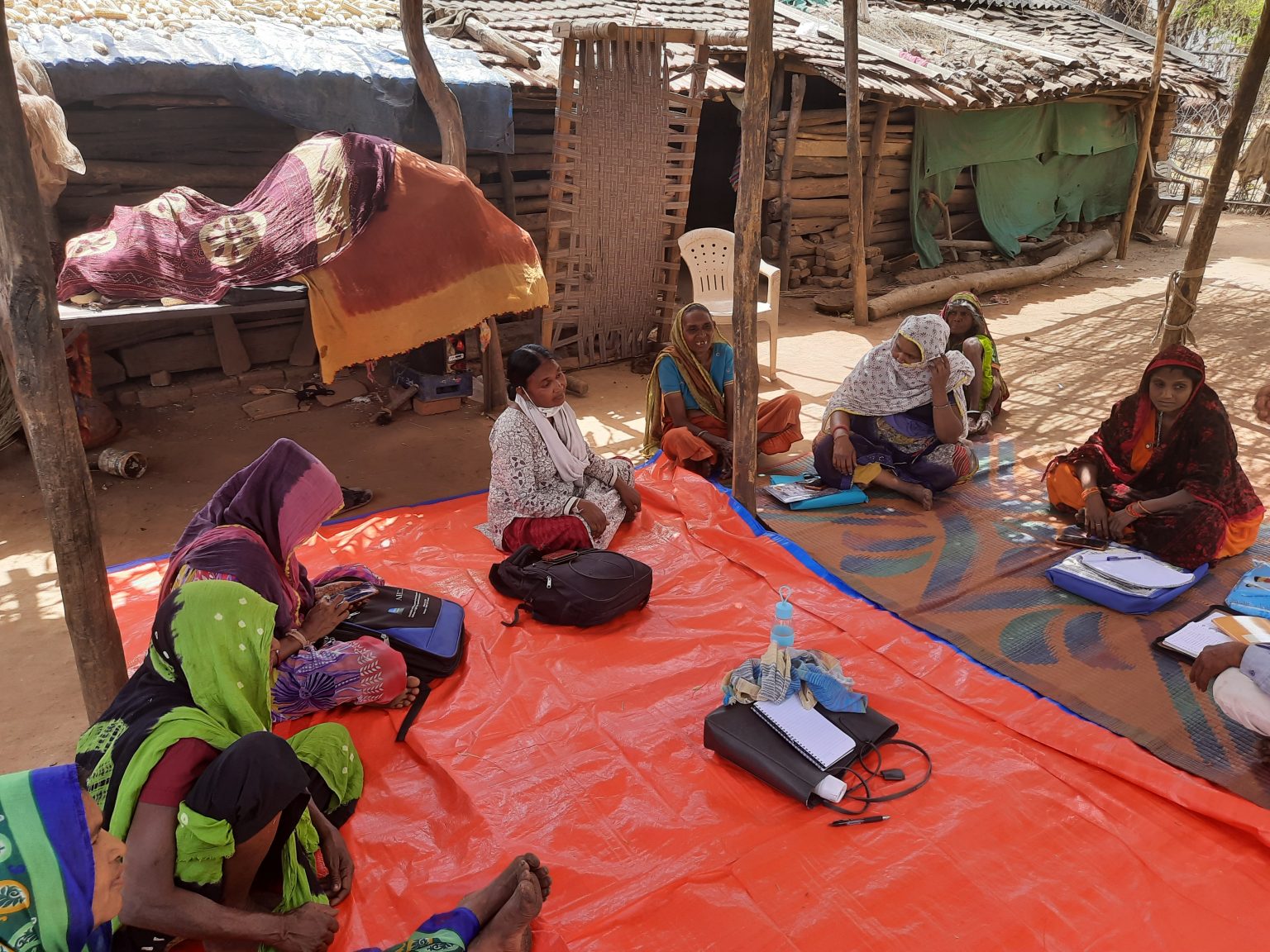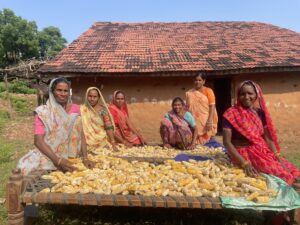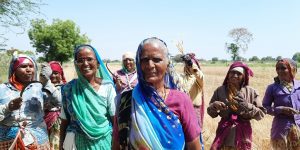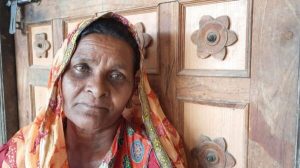Last November, 0ver 100 guests got to sample the tribal cuisine of the Bhil tribe during the annual three-day conference of the Institute of Rural Management in Anand. Lunch was drumstick flower and pumpkin curries, mithalo (maize flatbread), dal and rice and teatime snacks were urad and makai (maize) dal vadas.
The catering was done by eight Adivasi women from eastern Gujarat’s Dahod district where 74.32% of the population is tribal. Led by Savitaben Bachubhai Nayak, the women were taking a significant step into entrepreneurship. Till then they had run micro businesses, selling pickles, tamarind-date pops and ladoos and chikkis made of Mahua flower and ragi at fairs.
The Ratanmahal Adivasi Mahila Sajiv Khet Utpadak Ane Vechan Mandal (RAKSUM), as the collective calls itself, consists of women farmers and forest produce gatherers. Mostly referred to as Ratnamahal Mandali, the event’s success has brought the team bigger and more regular orders.
“When they started asking us about the menu, we knew we had done a good job,” said Raveenaben Nayak, a group member recalling the anxiety and excitement of the first venture. “The garlic pickle we served became so popular we have decided to sell it.”
The mandali and its members can now manage meal orders for upto 200-300 guests. Two 20-member kitchen teams, one each in Ghoghamba and Devgadh Baria, manage these kitchens. In 2019-20, the collective received 57 orders and earned a profit of Rs 97,896, according to the annual report of Area Networking and Development Initiatives (ANANDI), a non-profit that enables women to find farm-based livelihoods.
The kitchen is just one of the mandali’s many activities. Set up over 20 years ago, it began by training women from Dahod’s villages in vermicomposting for both sale as well as consumption. As the group grew, several other products such as organic pesticides and crops such as maize and millets were added to its sales list. The group now has over 650 members or shareholders from 43 villages in the district.
Given the area’s massive forest cover (24.27%), the team eventually added forest produce to its merchandise.
BehanBox has been reporting extensively on the land rights of women in Gujarat, especially those from marginalised and forest-dwelling communities. We reported that despite a law to regularise land ownership in forested regions, Adivasi women have to wait for a long time for official sanction to use their lands and then have to deal with harassment and violence at the hands of officials. And at the end of this struggle, patriarchal practices allow them very little control over the marketing of the produce they grow and collect.
We have also reported how men corner most of the revenue from forested lands, leaving very little for the women, who do the bulk of the work of collecting the produce. In this context, the Dahod collective is a significant initiative because it shows women from marginalised social groups how to collectivise, innovate and market the agricultural and forest produce of the area.
